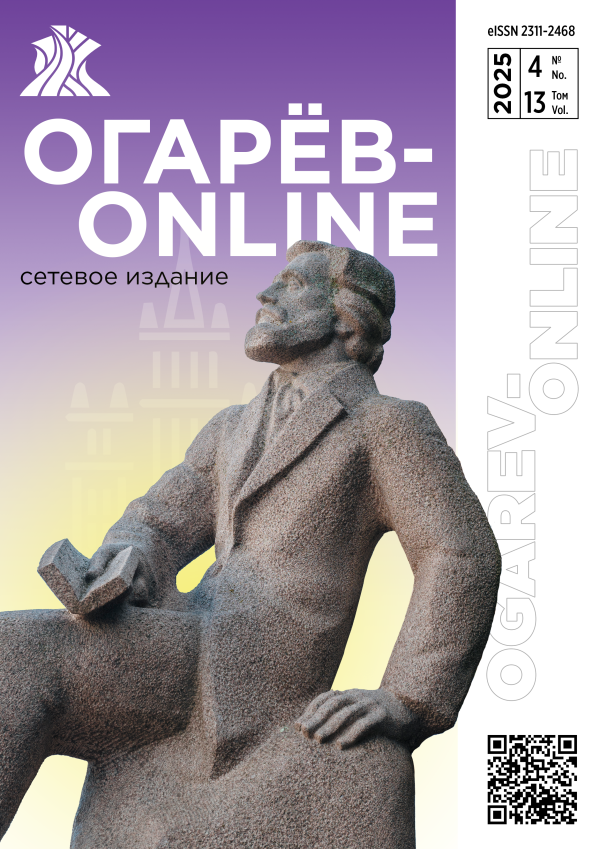Vol 3, No 21 (2015)
- Year: 2015
- Published: 11.09.2015
- Articles: 10
- URL: https://ogarev-online.ru/2311-2468/issue/view/19657
Full Issue
Slang formation in the Hungarian language
Abstract
The article deals with the ways of slang formation in the Hungarian language. The analysis is based on the material of several dictionaries of Hungarian slang. Definitions of the term "slang" are also presented. The authors consider a number of scholarly approaches to this linguistic phenomenon.


Mari heroic epic "Yugorno": history of the creation, topics, poetics
Abstract
The article deals with the experience of creation of Mari heroic epic in Russian. It considers the history of the creation and publication of the epic "Yugorno" by A. Spiridonov. The author analyzes the topics, composition, plot, images, and ideology of the poem with a focus on Mari folklore usage.




Historical character in the novel "bells’ shadows" by A. Doronin
Abstract
The article considers the literary means of realization of a historical character in the historical and biographical narration. This reveals the specifics of author's conception of the world and man, the aesthetic potential of Mordovian national literature in general.






Psychologism as a literary and aesthetic characteristic of the story "Dandelions" by N. Mirskaya
Abstract
Psychologism is a special quality that forms the style of the story "Dandelions" by N. Mirskaya. The article analyzes the literary forms, means and ways used to reveal the inner world of the characters. The author studies the principles of plot and composition construction of the story as a sample of modern Mordovian prose.






Functional differences between literary and spoken Finnish language
Abstract
The article deals with the functional features of literary and spoken Finnish language with a focus on the differences between them. Their usage is analyzed on a number of practical examples. The author emphasizes the importance of spoken language in teaching Finnish.
















